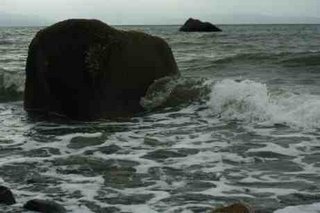 space. person.
space. person.i am trying to decipher how i feel right now, and where to go from here.
i can see how people become agoraphobes, afraid to leave their house. and i don’t even feel safe in this house because i am afraid someone will follow me here. it is so roomy that it’s impossible to have knowledge of the whole structure. the long room where i write used to be a garage and there is an internal patio to my left and two whole stories above me. twelve more rooms. too much space for me to have a handle on all of it. when the boys are home the house changes, they occupy the empty rooms and fill the house, pushing aside the insecurity. alexis, you wrote about this, alone in a cabin on a dark night.
in the street, after monday’s lesson, i always look behind me. continual right-left backwards glance to take in what’s going on, who and how many are around me. i long for a rear-view mirror (seriously!). even still… there are too many stories of other people not getting involved. it’s the saddest thing, really, fear and powerlessness. translated as apathy.
and i hate the “solution” as i’ve seen it. car windows are tinted, dark, and people i love have guns in their homes. the rich have their enclaves, heavily gated and guarded. parts of avenida de la reforma, shopping malls and teenagers driving cars full to the brim with bodyguards. big guns. everywhere. at first i thought that—as shitty as this is—it made me feel safer, but today i realized that it doesn’t. more than one gun means the possibility of a gunfight.
my body feels different to me here. i know part of it is just the residue of monday’s surprise, but it’s also my body hearing every story that’s been told to me since i arrived. today i noticed that i cringe when i leave the house. because there’s nothing that will make me feel safe here. and i am craving that illusion. for me this is a shock: the mobility i had in paris reduced drastically by fear. a fear part paranoia, heightened by imagination, yes, but marinated in reality. i haven’t ever left the house with my camera. i never carry a bag. i don’t leave the house after dark.
for people here, i suppose the change has been more gradual for them. for those without, maybe not as much—they still can’t go to the shopping mall in zona 9. for those with some, they avoid buses and have to take taxis. because gring@s are far from being the only targets. the streets are lonely after dark. markets, parks, avenues, highways have less traffic. and yet this is life. i remember thinking the same thing in the west bank, going through yet another checkpoint staffed by belligerent and hostile IDF: this is life. and remembering that as scared as i was by the obnoxious soldier asking me the same damn questions about where i was going and why i was here i would still make it across. and some of the passengers—work visas and all—wouldn’t. and many, many others can never cross at all.
so i feel afraid. and pushed out. into this house, off of the street, away from the night, without my “things” (earrings, obviously, but also necklace, camera…). and i also feel the paranoia i felt at the checkpoints and in the tel aviv airport and i recognize it as paranoia. still. here there are too many stories. and too many guns. and too much impunity. and too many dead. i think, as in salvador, there are more deaths now, due to crime (both miliary organized narcotrafficking and random shit) than there were during the war. and this is life.
and i can go home. which, honestly, is what i consider every day, every time i hear another story or read the newspaper or watch the yellow news. and then i think about the injustice of that which—while far from obligating me to stay here—highlights all the more how this seething, voracious capitalism isn’t just economics. it’s the organization of space. and how your body feels.


0 Comments:
Post a Comment
<< Home